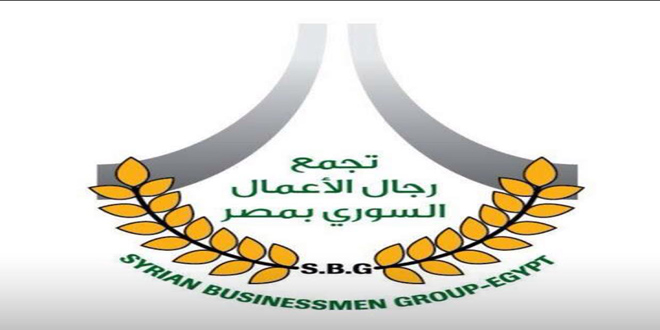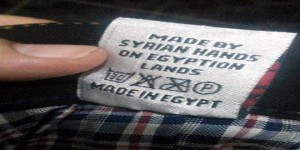Damascus, SANA- After the terrorist war that targeting Syria and negatively affecting its investments in all domains, some Syrian businessmen determined to continue their business in other countries, mainly the Arab one as Egypt.
The Syrian businessmen established projects that also enabled them to help the displaced Syrians, who were forced to leave the country due to crimes and heinous acts perpetrated by the terrorist organizations.
“Syrian businessmen group- Egypt” is a group of Syrian businessmen in Egypt who decided to continue their business abroad and form semi-projects and factories that helped them and Syrians there.
“The number of the Syrian factories in Egypt constitutes about 80 percent of the Syrian factories established abroad,” Khaldoun al-Mowaqaa, head of Syrian businessmen group- Egypt has said.
He added in a statement to SANA that the Syrian industrial factories operating now in Egypt concentrate mainly on the textile sector in addition to some food and trans formative industries.
The Syrian industrialists selected Egypt to establish factories and make their industries because it is the biggest on the Arab level and they knew its markets as it was previously a market for their exports which are endowed with good reputation and distinguished position according to the Egyptian consumer, he highlighted.
Egypt’s location near the traditional markets of the Syrian exports, the Gulf States and Africa, according to al-Mawqaa, allowed the Syrian manufacturers to familiarize the markets of the African countries in general and enter them through the Egyptian long- term relations and economic agreement with those countries.
Al-Mawqaa pointed out that what makes Egypt the most appropriate place for the Syrian industrialists is the Egyptian people’s nature of which the Syrians are consistent with.
The Egyptian consumer becomes nowadays searching for the products that have the following brand “Made by Syrian hands on Egyptian lands”, which means that the Syrian industry maintained its identity even its products are made in Egypt, he clarified.
Establishing the group, as al-Mawqaa considered, is necessary to preserve the interests of the Syrian businessmen in Egypt and their decisions’ independence in addition to its role in enhancing their relations and connections in a way that makes them ready to return to the homeland once the coercive factors that led them to leave Syria disappear.
AL-Mawqaa hailed the positive role played by the Syrian expatriate businessmen in Egypt through offering help for other Syrians there.
He affirmed that any Syrian manufacturer in Egypt has no more than 5 or 10 % of what he has been possessing in Syria, noting that those industrialists left Syrian due to compelling reasons and the alienation has increased their sense of belonging, so what they established in Egypt is a useful investment and would not be closed when they
return to their country and it will not be an obstacle in preventing them from return back home.
Reem/Barry
 Syrian Arab News Agency S A N A
Syrian Arab News Agency S A N A



